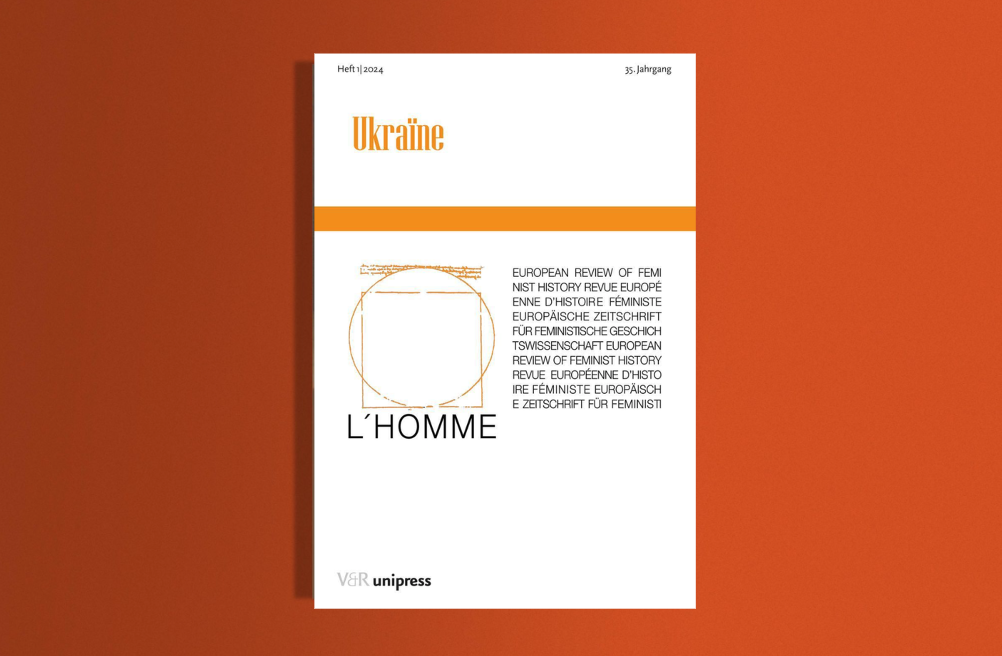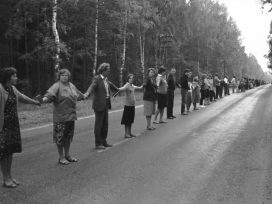L’Homme presents three historically progressive texts on how Ukrainian women’s rights have been impacted by significant national upheaval. First up, Olha Posunko examines women’s property rights in southern Ukraine during the late-eighteenth to mid-nineteenth centuries. Drawing on court records, property registers and communication with officials, Posunko addresses the largely overlooked rights accorded to women when the Russian Empire’s administrative control reshaped the region.
The aristocratic woman’s ability to inherit and own property was a rare privilege given the broader marginalization of women under Russian rule. These economic rights, rather than reflecting gender equality, however, indicated the upper-class desire to safeguard property and assets. In parts of southern Ukraine with a stronger history of female land ownership, entrepreneurship and secular marriage contracts, affluent women had more rights in practice than elsewhere in the empire. Their entitlement enabled families to retain their property and protect it from state seizure or debt collection.
Such assurances couldn’t protect everyone, however. Women who grew up in or married into a highly traditional or abusive household, where local and familial customs and dynamics prevailed, didn’t benefit from their legal property rights. And poorer women remained marginalized in all respects.

Between conservatism and emancipation
During the early-twentieth century, Galicia, under Habsburg rule, was a diverse, multi-ethnic region spanning parts of present-day Poland and western Ukraine. As women’s rights movements gained momentum in other parts of the world, Galicia also saw the rise of feminism, influenced by the region’s cultural and political dynamics. Given local inter-ethnic tensions, separate Polish, Jewish and Ukrainian women’s movements developed in the region.
Nataliia Kolb and Nataliia Mysak investigate how the daughters of Greek-Catholic priests played a key role in the development of Ukrainian women’s rights. While citizens were struggling for greater national rights and independence, priests prioritized their daughters’ education and civic awareness to promote the Ukrainian cause. Despite coming from communities that still espoused very traditional gender roles, these socially active women founded societies and organizations that promoted women’s educational and financial independence, breaking new ground in the region.
Forced migration
Interviews with over two dozen displaced Ukrainian academics inform Viktoriia Ivashchenko and Yulia Kiselyova’s study of Ukrainian gender dynamics. When millions of Ukrainians were forced to leave in 2022 due to Russia’s full-scale invasion, many European academic institutions offered fellowship positions to qualified migrants. As martial law restricted men of fighting age from leaving Ukraine, women became the main beneficiaries of this support. Ivashchenko and Kiselyova ask whether this development could reshape gender relations in Ukrainian academia, or women will still face barriers to advancement where senior positions are male-dominated.
The interviews reveal both challenges and opportunities for these scholars. Many reject the ‘refugee’ label, emphasizing their newfound independence and resilience. While embracing new professional development opportunities, their responsibilities of care, family conflicts and the guilt they suffer for leaving Ukraine may hinder their ability to fully benefit from these roles. Most express a desire to return to Ukraine and apply their experience for the benefit of the country. Whether this change in opportunities for women leads to lasting shifts in academia depends on future support for them to fulfil their potential.
Review by Emma Mateo







